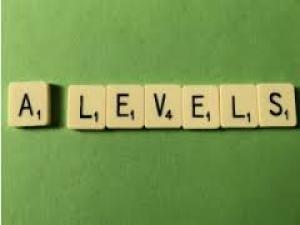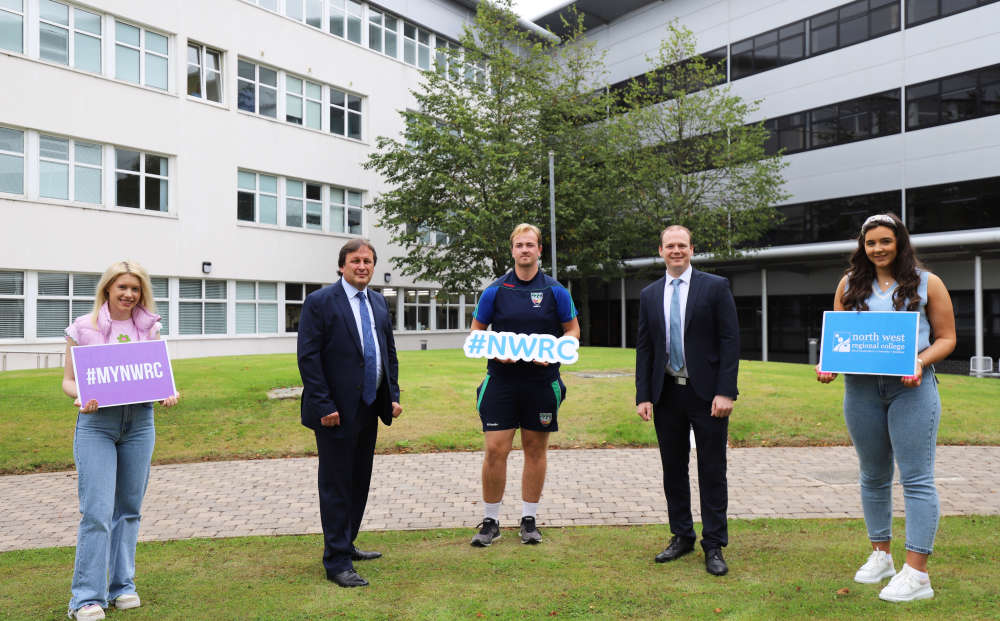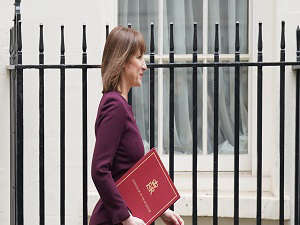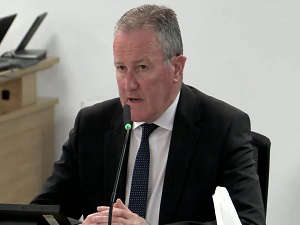
By Rebecca Black, PA
There has been an increase in the number of students in Northern Ireland receiving the top grades at A-level.
Thousands of students across the region received teacher-assessed grades on Tuesday following the cancellation of exams for the second year in a row due to the coronavirus pandemic.
Some 15.8% of students achieved the top A* grade at A-level, a 2.3 percentage point increase from last year.
Those receiving A* – A grades also increased by 7.5 percentage points to 50.8%.
There was a slight decrease of 0.4 percentage points in those receiving grades A*-E to 99.4%, compared to 99.8% last year.
Entries for A-levels in Northern Ireland were up by 3.8%, which was described as in line with the increase in the school-age population.

Mathematics was the most popular A-level, accounting for just under one in 10 entries.
In a statement, the Joint Council for Qualifications (JCQ) commended the hard work of teachers, “using their professional judgment and a range of evidence to determine students’ grades”.
“This flexibility, at the core of the process, ensured that schools and colleges were able to reflect what students had been taught and account for the various levels of disruption they experienced,” JCQ said.
“To support schools and colleges, awarding organisations provided extensive guidance, training and external quality assurance, to ensure grades were determined appropriately.
“As the means of determining grades in 2021 has been different to any other summer, it was anticipated that the overall distribution of grades would differ from that of a standard year.”
A total of 25,468 students from 180 centres in Northern Ireland, mostly schools and further education colleges, entered for AS and A2 qualifications set by local exams body CCEA.
Some students undertook assessments by other exam bodies based across the rest of the UK.

Education Minister Michelle McIlveen met a number of students receiving their results at Regent House school in Newtownards, Co Down.
She also acknowledged the exceptional circumstances in which they have been awarded.

“I wish to congratulate all the young people who have received their A Level results today.
“These outcomes reflect the assessments made by the people who know you best, your teachers,” she said.
“I appreciate the past few months have been particularly challenging but our young people have demonstrated a determination not to let this pandemic put their lives on hold.
“Today, they have been awarded qualifications which reflect their hard work and will enable them to move forward confidently with their future plans.
“Teachers and school leaders had a very difficult job to do and I want to express my appreciation for their hard work and commitment to their students in challenging circumstances.”
Margaret Farragher, interim chief executive of CCEA, thanked those involved in the process and congratulated students.
“I would like to pay tribute to all the teachers, examination officers, school and college leaders who have been central in determining the grades awarded this year,” she said.
“Thanks to their hard work and constant professionalism during the last 18 months of disruption, students have been able to receive grades and progress on to the next stage of their journey.”
Grades were assessed by teachers and decided via a five-stage process. This did not include the statistical algorithm used last year to standardise results which sparked outrage after more than a third of A-level grades predicted by teachers were reduced.
An outcry from teachers, parents and students led to the original teacher assessed grades being issued.
CCEA said it had a high level of engagement with principals, teachers, learners, parents, unions, the UK awarding bodies and assessment academics on the process for this year.
Students were described as being assessed on what they had been taught, taking into account disruption throughout schools due to the pandemic.
School leaders received training from the Chartered Institute of Educational Assessors, as well as resources to train teachers to assess grades in accordance with CCEA grade descriptors, before an internal standardisation process within schools.
Centre heads, principals in most cases, were required to confirm the grades were a true reflection of student performance.
CCEA then took samples from each centre to assess the effectiveness of the policy to produce reasonable grades.
Grades can be appealed without charge this year in a two-stage process of a centre review to rule out administrative errors and/or a CCEA review of the professional judgment of the teachers.
This year’s GCSE grades will be issued on Thursday.

Economy Minister Gordon Lyons has urged those receiving their results to use his department’s careers service.
“Careers advisers have access to up-to-date information on employment trends provided by the department’s economists and offer impartial advice and guidance on a range of career pathways, including further and higher education, training and employment including apprenticeships and higher level apprenticeships,” he said.
The service can be accessed at: https://www.nidirect.gov.uk/services/chat-with-a-careers-adviser.


 Government choosing weapons over public services – Michelle O’Neill
Government choosing weapons over public services – Michelle O’Neill
 Devolved regions ‘politely entertained but not listened to’ during pandemic
Devolved regions ‘politely entertained but not listened to’ during pandemic
 Man dies following fire at fold in Co Down
Man dies following fire at fold in Co Down
 Forensic accountants to examine projected NI Water overspend, Kimmins announces
Forensic accountants to examine projected NI Water overspend, Kimmins announces
 Nine Northern Ireland schools targeted with threatening email thought to be hoax
Nine Northern Ireland schools targeted with threatening email thought to be hoax